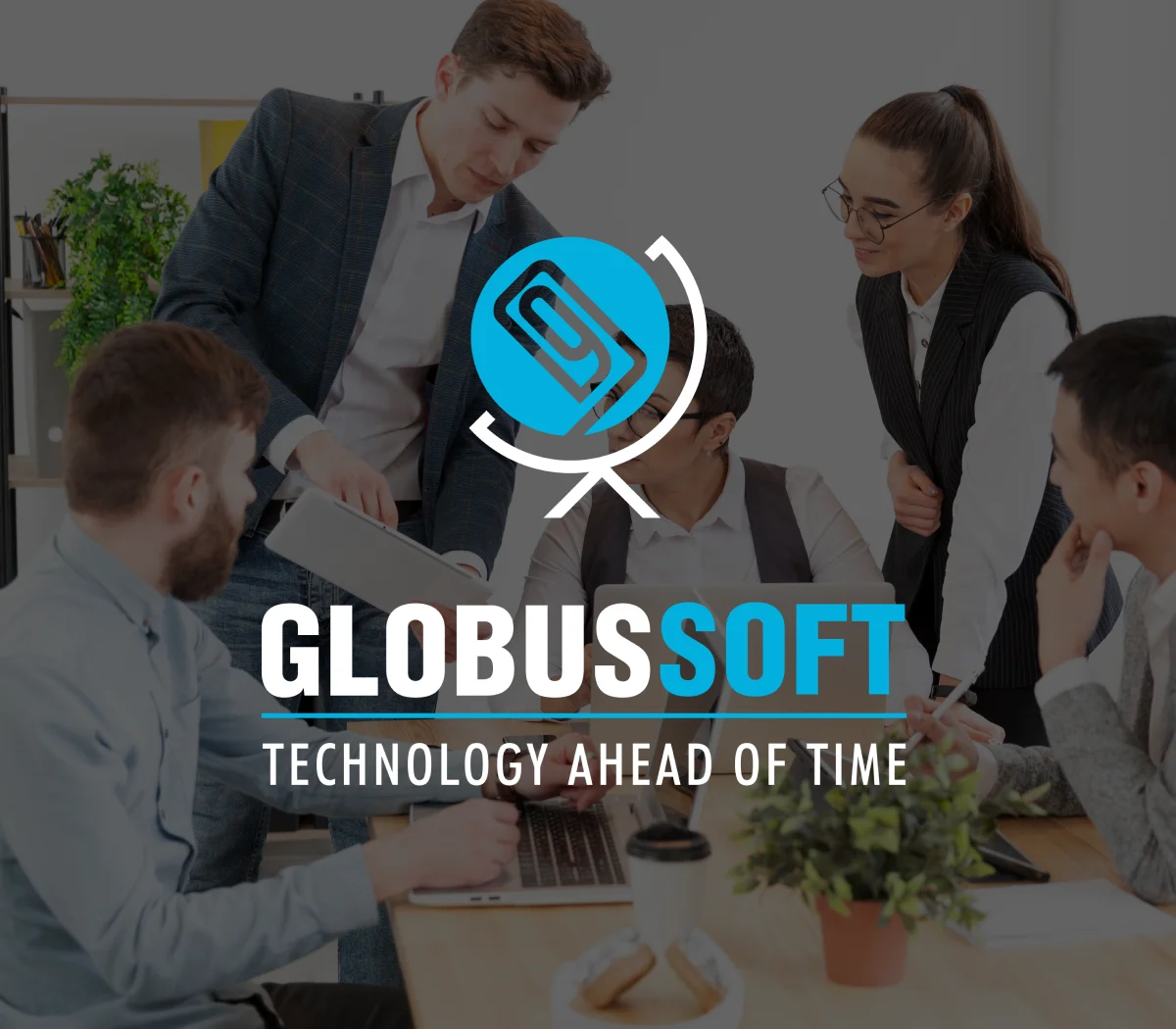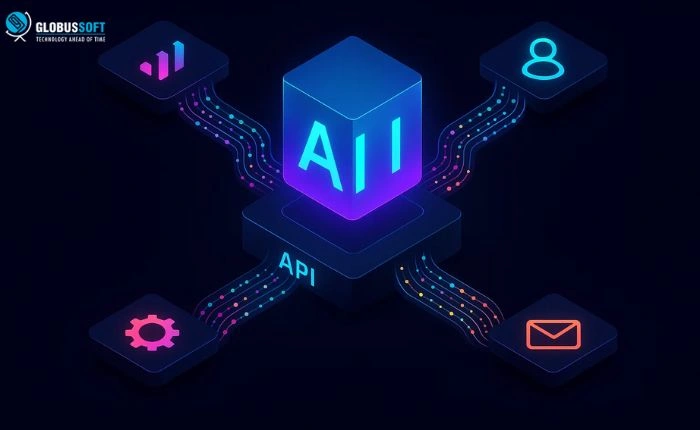
In the modern business landscape, speed and intelligence are key to success. Every organisation, regardless of its size or industry, is seeking smarter ways to operate, engage customers, and make informed decisions. From automating manual tasks to predicting future outcomes, AI API and artificial intelligence have quietly become the backbone of digital innovation.
Amid this technological evolution, one concept has emerged as a silent powerhouse: AI API. It’s what allows businesses to plug advanced AI capabilities directly into their products, systems, and processes—without reinventing their entire infrastructure.
Think about your favourite apps that can analyse speech, recommend what to buy next, or instantly chat with artificial intelligence. These intelligent experiences are often powered by APIs that connect applications to AI models running in the background.
In a world driven by data and automation, adopting an AI API isn’t just an advantage—it’s becoming essential. Companies that embrace it are transforming how they deliver services, understand customers, and stay ahead of competitors.
You can listen to this blog here.
What Is an AI API and Why Does It Matter?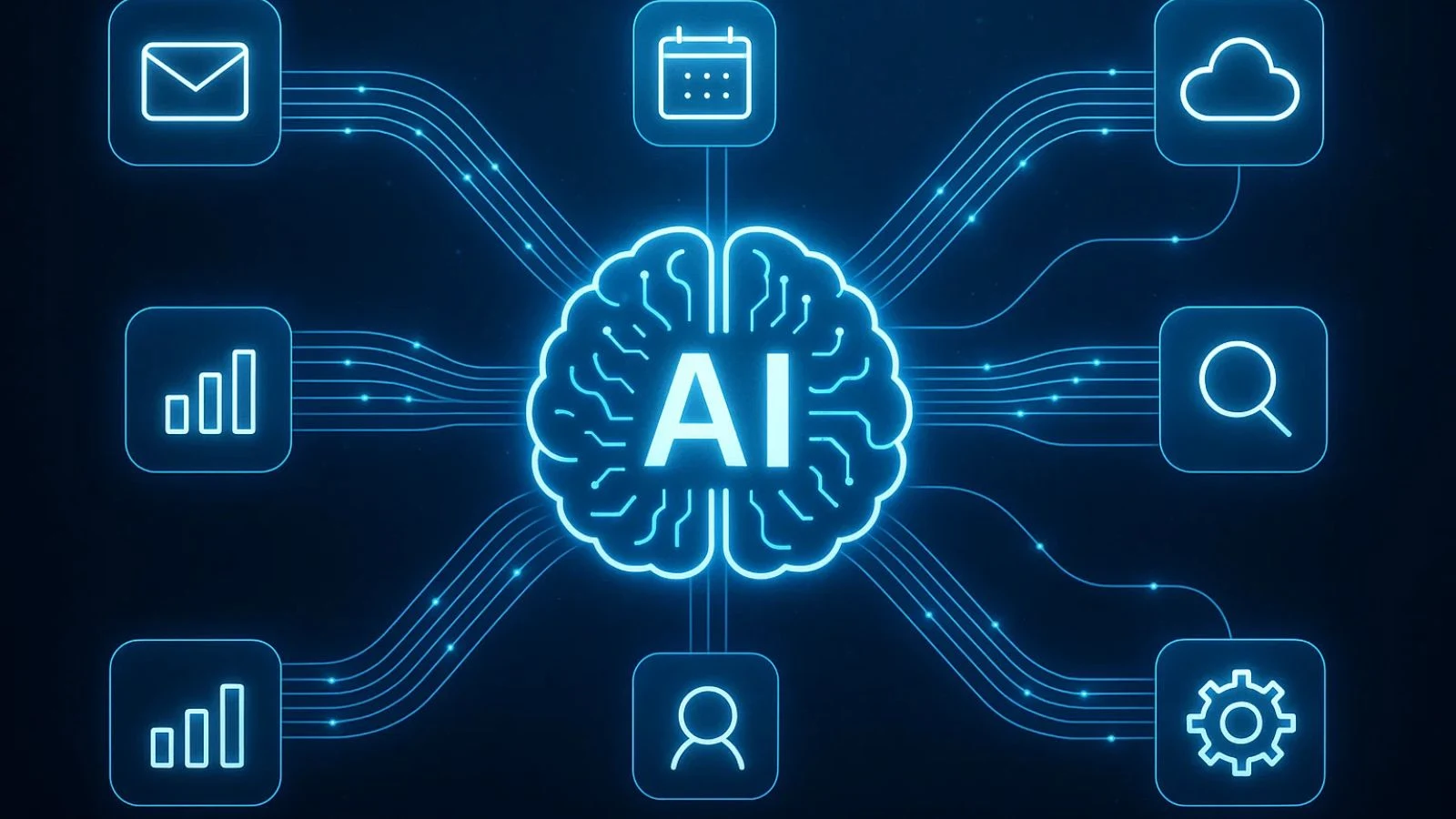
At its core, AI API stands for Artificial Intelligence Application Programming Interface. In simpler terms, it’s a bridge that connects everyday applications with the powerful capabilities of artificial intelligence. Instead of building complex AI models from scratch, businesses can use an AI API to access ready-to-use intelligence features such as speech recognition, image analysis, natural language understanding, predictive analytics, etc.
For example, when an eCommerce platform recommends a product based on your browsing history or a chatbot instantly answers your query, it’s likely powered by an AI API working quietly in the background. These APIs make it possible to enhance digital experiences without requiring deep technical expertise in machine learning or data science.
The concept of AI API integration allows developers to blend AI functionalities directly into their existing systems—be it a website, mobile app, or business software. This seamless integration saves both time and resources while enabling organizations to deliver smarter, more adaptive services to their users.
In today’s fast-paced digital ecosystem, AI API has become more than just a technical asset—it’s a strategic tool for innovation. It empowers businesses to respond faster, think smarter, and create solutions that continuously learn and improve over time.
How AI API Works Behind the Scenes?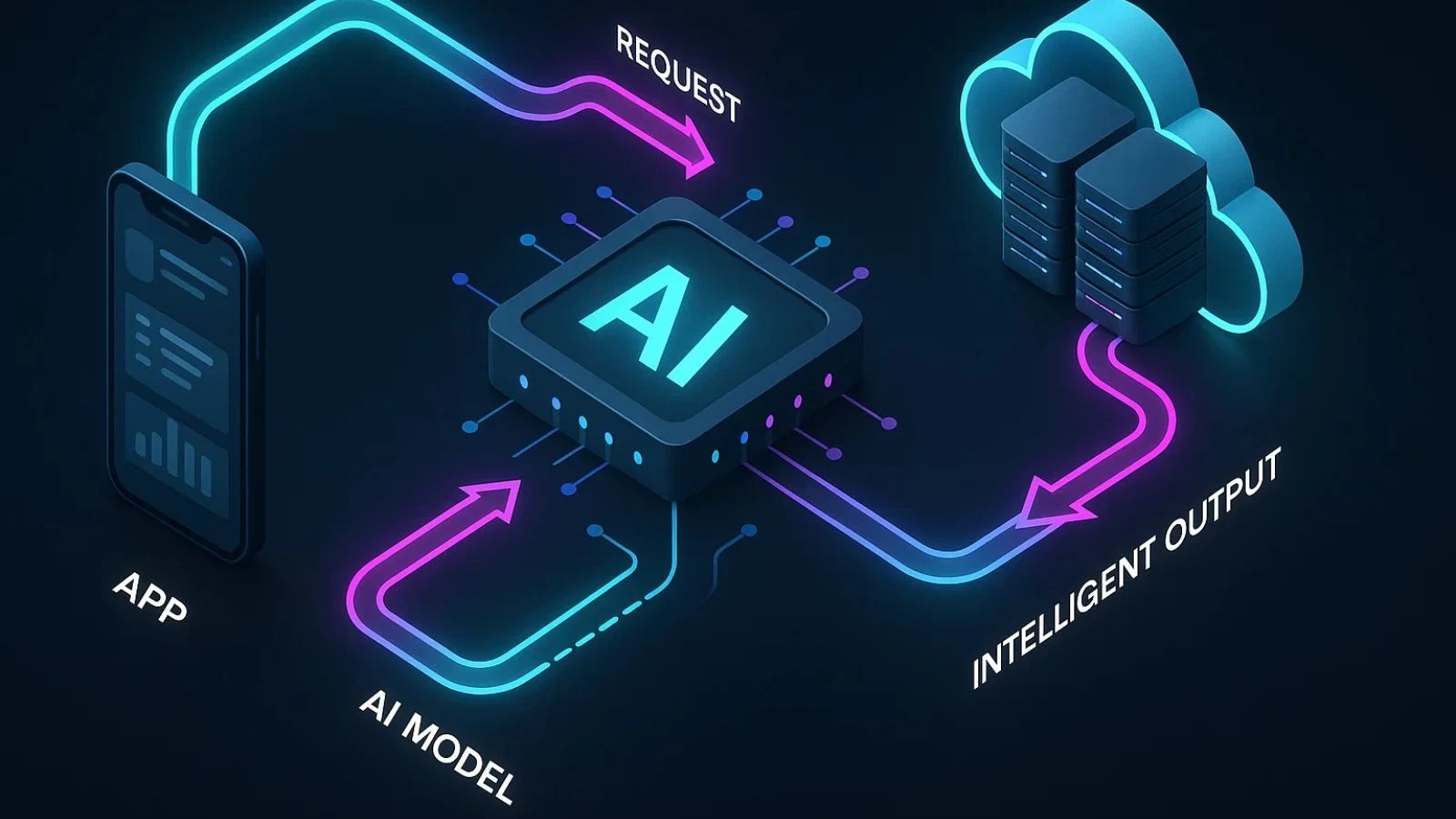
To understand the power of AI API, it helps to see what happens behind the scenes. When an application sends a request to an AI API, it’s essentially asking the AI model to perform a specific task—like recognizing a face in a photo, summarizing a document, or predicting user preferences. The API then connects the app to a trained AI model hosted on the cloud, processes the input data, and returns an intelligent output within seconds.
This process is what makes how ai api integration works so fascinating. Businesses don’t need to host massive AI systems internally. Instead, they can rely on pre-trained models that are constantly updated and optimized by AI providers. This means even a small business can deliver AI-powered features without building the technology from scratch.
For instance, when you use a platform that lets you chat with artificial intelligence, that chat interface is connected to an AI API in the background. The API interprets the user’s message, processes it using natural language understanding, and sends back a context-aware response—all happening almost instantly.
Through this seamless connection, the ai api acts as a communication layer between raw data and intelligent outcomes. It’s fast, scalable, and designed to make complex AI operations accessible to everyone—from developers to large enterprises.
Key Business Benefits of Using an AI API
Adopting an AI API is not just a tech upgrade; it’s a transformation in how businesses function. By integrating AI capabilities directly into their systems, companies unlock smarter, faster, and more efficient ways to work.
One of the biggest advantages is enhanced customer experience. AI APIs help businesses personalize interactions, predict customer needs, and deliver instant support. Think of AI-powered chatbots or recommendation engines; these tools analyze user behavior and respond in real time, creating more engaging digital experiences.
Another major benefit is data-driven decision-making. With an ai api, organizations can process massive amounts of data effortlessly. From identifying patterns in customer behavior to forecasting market trends, businesses can make informed decisions faster than ever before.
Cost-efficiency and scalability are also key. Since AI APIs work through the cloud, companies avoid the heavy costs of building and maintaining AI infrastructure. They can start small, experiment, and scale as their needs grow.
The seamless integration of API also ensures that existing tools and workflows remain intact while becoming smarter through automation. It helps reduce manual effort, boost accuracy, and improve productivity across departments.
In short, integrating ai api into your business means building a system that learns, adapts, and grows with you—turning everyday processes into intelligent, data-powered operations.
Real-World Applications of AI API Across Industries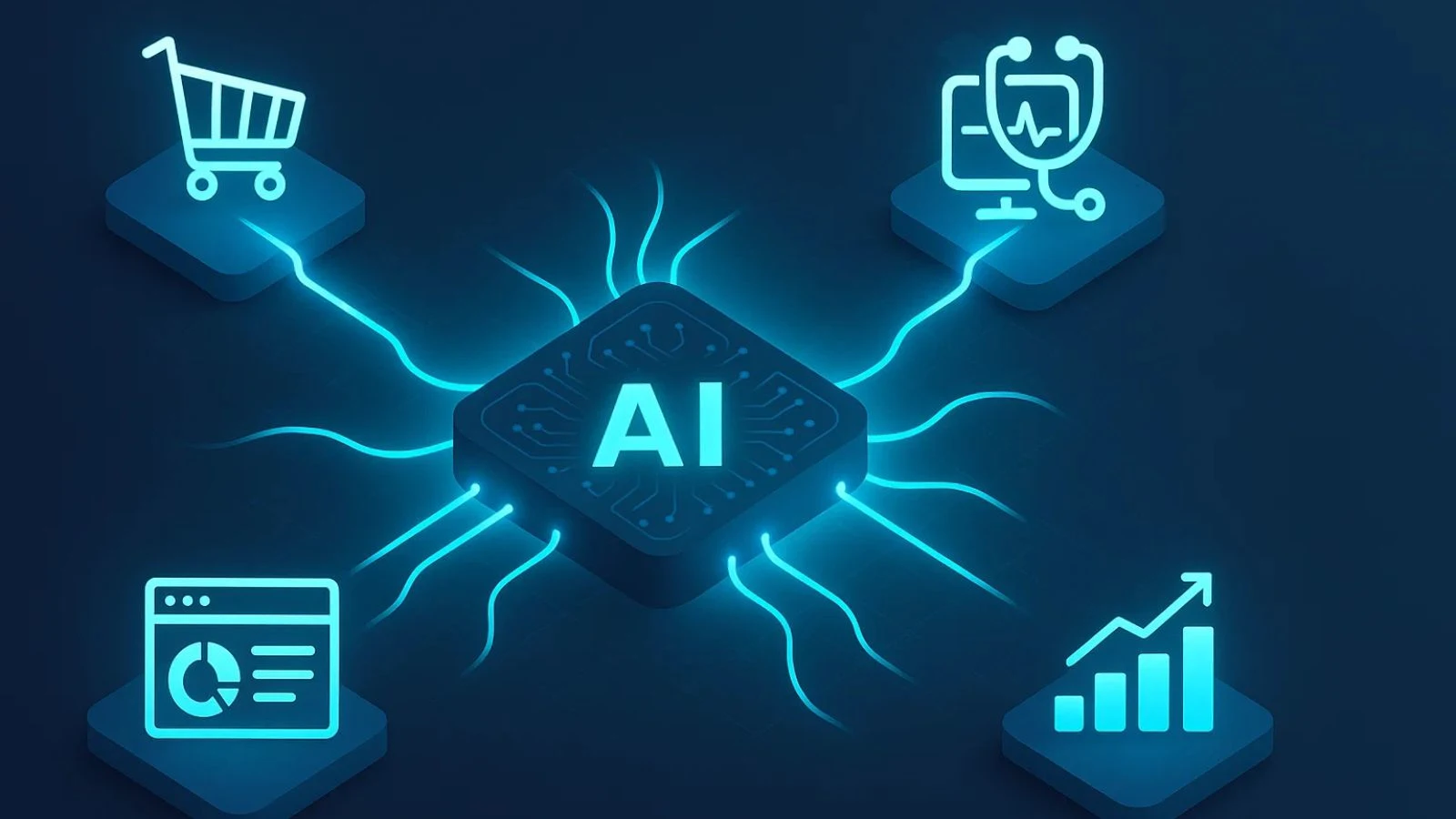
The true impact of AI API can be seen in how different industries are using it to solve complex challenges and create smarter solutions. From e-commerce to healthcare, AI APIs are driving a wave of innovation that makes digital systems more intuitive and responsive.
In eCommerce, AI APIs power personalized product recommendations, visual search features, and virtual assistants that guide users through their buying journey. By analyzing user behavior in real time, businesses can deliver more relevant experiences that boost conversions and customer satisfaction.
In healthcare, AI APIs assist doctors and medical professionals with diagnostic tools that analyze scans, detect anomalies, and predict patient outcomes. These intelligent systems help reduce errors, save time, and improve patient care.
In finance, an AI API can analyze massive datasets to detect fraud patterns, assess credit risks, and predict market shifts. Financial institutions are using these insights to make faster, data-backed decisions and ensure more secure transactions.
In marketing and customer service, AI APIs make it possible to automate campaigns, generate data-driven insights, and enable users to chat with artificial intelligence assistants that understand context and intent.
These examples show that AI API isn’t limited to one niche—it’s a flexible technology reshaping every industry it touches. No matter the domain, it brings intelligence, automation, and precision into the heart of business operations.
Challenges and Best Practices for Implementing AI API
While AI API offers incredible potential, successful implementation comes with its own set of challenges. Many businesses face issues like managing large volumes of data, ensuring integration compatibility, and maintaining data privacy. Without proper planning, even the most advanced AI tools can fail to deliver expected outcomes.
To make the most of AI API integration, it’s important to start small—experiment with limited use cases and scale gradually. Prioritize data quality since AI models rely heavily on accurate and well-structured input. Also, collaborate with trusted providers who offer clear documentation and reliable support.
Security should always be a top concern. Encrypt sensitive data and follow best practices for compliance. By combining the right strategy, technology, and governance, companies can unlock the full potential of AI APIs while minimizing risk and ensuring sustainable growth.
How Globussoft Helps Businesses Leverage AI API?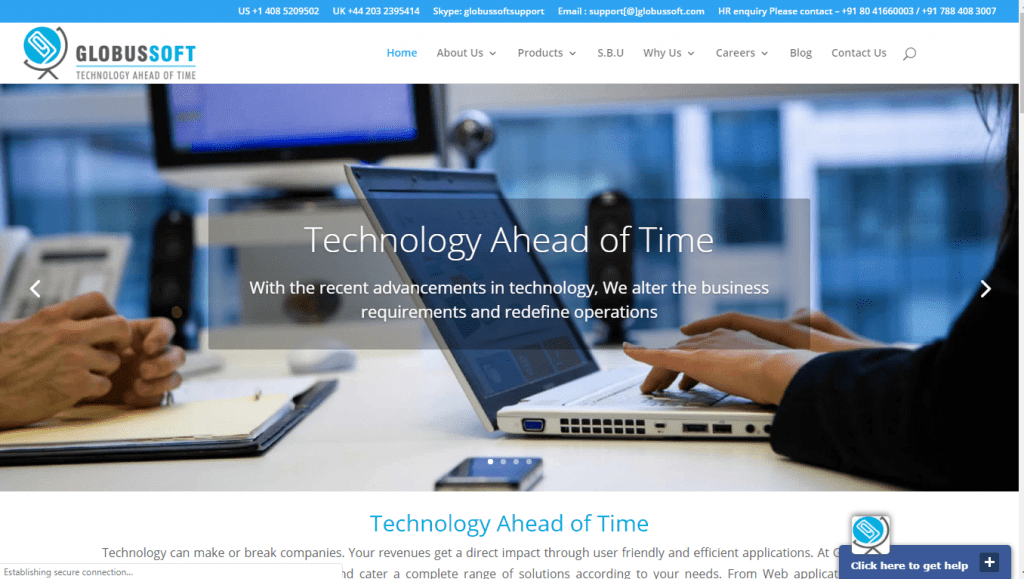
Technology is moving fast, and most businesses today are trying to figure out how to use AI in ways that actually make a difference. This is where Globussoft has been quietly making an impact. Instead of just talking about innovation, the company focuses on building practical tools that show how AI can simplify everyday operations.
Over the years, Globussoft has worked across different areas—AI-powered platforms, workforce tech, automation tools, and even Web3 projects. This experience has helped the company understand how APIs can be used to solve real problems rather than become another layer of technical complexity.
What sets Globussoft apart is its approach. The company doesn’t expect businesses to learn the inner workings of artificial intelligence. Instead, it blends AI into the background of the products it builds—helping teams analyze data faster, work more efficiently, and make better decisions without changing their existing workflows.
Its ongoing work in automation, analytics, and decentralized technology shows that Globussoft isn’t just following trends; it’s exploring how these technologies can work together in meaningful ways. Whether it’s improving the way people interact with digital tools or creating smarter systems behind the scenes, the goal is simple: make advanced tech feel easy and useful.
The Future of AI API and Digital Intelligence
The future of API is set to be even more transformative. As artificial intelligence continues to evolve, APIs will become smarter, faster, and more adaptable to business needs. They’ll not only process data but also understand context, emotions, and intent—making digital interactions feel more human and intuitive.
With advancements in machine learning and cloud computing, ai api integration will become effortless, allowing businesses of all sizes to access world-class AI capabilities. From personalized healthcare recommendations to hyper-targeted marketing campaigns, AI APIs will be the driving force behind innovation in every industry.
Businesses that invest in AI API today are essentially preparing for a future where automation and intelligence blend seamlessly. The coming years will belong to companies that use these technologies not just to work smarter—but to redefine what’s possible in a digital-first world.
Also Read,
How The Design Thinking Process Enhances Customer Experience Management?
What is the Importance of Artificial Intelligence in Everyday Life?
Conclusion
As businesses continue to evolve in the age of intelligence, the role of the API becomes more crucial than ever. It bridges the gap between traditional systems and modern innovation, allowing organizations to integrate smart, learning-based capabilities without rebuilding their entire infrastructure.
Through AI APIs, companies can automate processes, personalize customer experiences, and make data-driven decisions faster. Its flexibility and scalability make it a valuable asset for every industry, from startups exploring AI for the first time to enterprises optimizing their digital ecosystems.
In essence, adopting an API is not just about keeping up with technology; it’s about leading with it. Companies ready to embrace this transformation are the ones shaping the future of digital intelligence. By partnering with innovators like Globussoft, businesses can step confidently into an era where technology doesn’t just assist it thinks, learns, and evolves with them.
FAQ’s
1. What skills are needed to work with an API?
Working with an API doesn’t require deep expertise in artificial intelligence. Developers just need basic programming knowledge, an understanding of RESTful APIs, and how to handle JSON or XML data formats to make requests and process responses.
2. How secure is data when using API services?
Security largely depends on the provider and implementation. A reliable API service uses encryption, authentication tokens, and secure endpoints to ensure sensitive business data is protected during every interaction.
3. Can the AI API be customized for specific business needs?
Yes, most API providers allow customization. Businesses can fine-tune models, adjust response parameters, or integrate domain-specific data to align the API’s output with their unique requirements.

